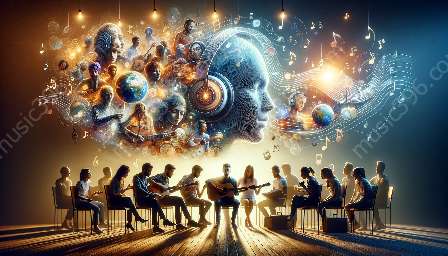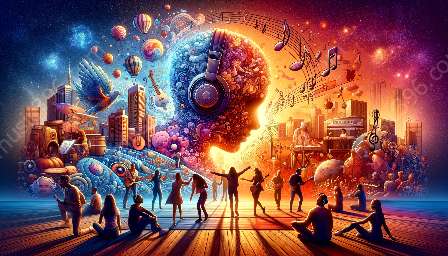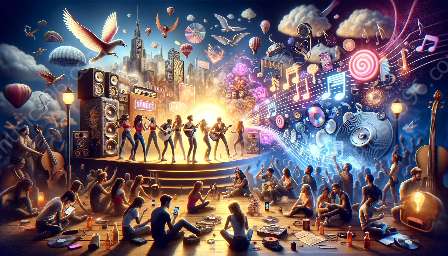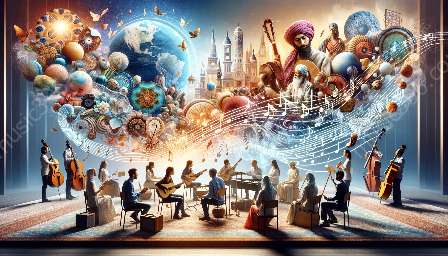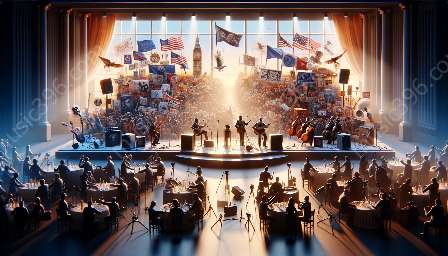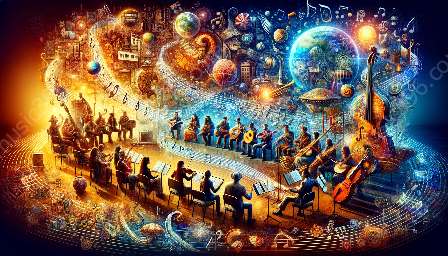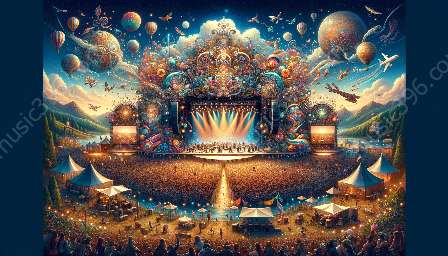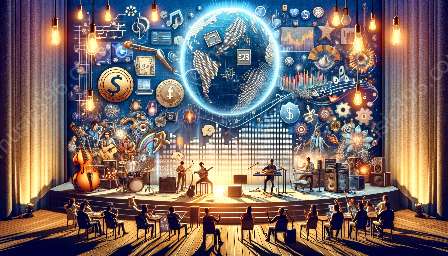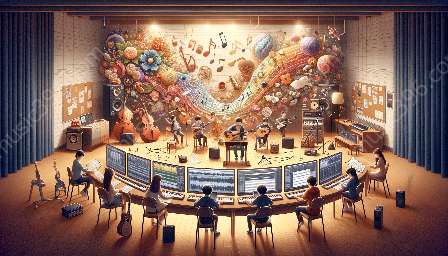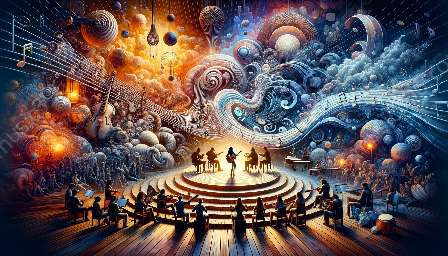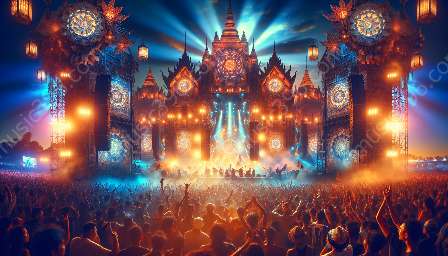Live music performances have the power to evoke strong psychological responses in individuals, influencing their emotions, behaviors, and cultural experiences. The psychological impact of music lies at the intersection of music and culture, shaping our perceptions and interactions with the world around us.
The Psychological Impact of Live Music Performances
Live music performances create a unique sensory experience that can elicit a wide range of psychological responses. As individuals engage with live music, their brains undergo complex cognitive and emotional processes that contribute to their overall psychological well-being.
Emotional Regulation: Music has the ability to elicit and regulate emotions, playing a significant role in influencing mood and emotional states. Live music performances often provide a platform for emotional expression, allowing individuals to connect with the music on a deeper level and experience a range of emotions, from joy and excitement to nostalgia and introspection.
The experience of witnessing live performances can enhance emotional regulation by providing a cathartic outlet for individuals to express and process their feelings, ultimately contributing to their psychological resilience and well-being.
Social Connection: Live music performances serve as a powerful tool for social connection, bringing individuals together in shared experiences that foster a sense of community and belonging. The communal aspect of attending live music events can promote social bonding and create opportunities for meaningful interactions, positively impacting individuals' psychological states and interpersonal relationships.
Furthermore, the collective emotional responses elicited during live music performances can strengthen social cohesion and solidarity, contributing to a sense of collective identity and cultural belonging.
Music and Cultural Influence
The psychological impact of music extends beyond individual experiences, significantly shaping cultural norms, values, and identity. Live music performances play a central role in influencing cultural dynamics, contributing to the formation and perpetuation of cultural practices, traditions, and beliefs.
Cultural Identity: Music is intricately woven into the fabric of cultural identity, reflecting the unique traditions, histories, and narratives of diverse communities. Live music performances serve as a platform for the expression and celebration of cultural identity, enabling individuals to connect with their heritage and affirm their cultural belonging through music.
By actively engaging with live music that resonates with their cultural roots, individuals can experience a profound sense of pride, connection, and psychological empowerment, bolstering their cultural identity and solidarity within their communities.
Psychoacoustic Influence: The psychoacoustic properties of music, including rhythm, melody, and timbre, exert a profound influence on cultural perceptions and behaviors. Live music performances can shape cultural experiences by evoking specific psychological responses tied to music's sonic qualities, such as energizing rhythms that inspire movement and dance, or melodic motifs that evoke feelings of nostalgia and collective memory.
Moreover, the cross-cultural exchange facilitated by live music performances can lead to the assimilation and diffusion of musical elements across diverse communities, contributing to the enrichment and diversification of cultural experiences and perspectives.
The Intersection of Music, Culture, and Psychology
The interplay between live music performances, cultural influence, and psychological response highlights the intricate connections between music and the human psyche. The psychological impact of live music performances extends beyond individual experiences, shaping cultural landscapes and contributing to the collective psychological well-being of communities.
Shared Emotional Experiences: Live music performances create opportunities for shared emotional experiences that transcend individual boundaries and foster collective emotional resonance within cultural contexts. The communal expression of emotions through music contributes to the cultivation of cultural empathy and understanding, promoting social cohesion and emotional solidarity.
Through the synchronization of emotional responses during live music performances, individuals can experience a sense of shared psychological connection, reinforcing cultural bonds and building a collective emotional repertoire that shapes cultural expressions and experiences.
Conclusion
Live music performances have a profound psychological impact, influencing individual and collective responses to music and cultural experiences. By understanding the psychological dimensions of live music performances and the intersection of music, culture, and psychology, we can appreciate the transformative power of music in shaping our psychological well-being and cultural identities.
Through the exploration of the psychological responses evoked by live music performances, we gain insight into the deep-seated connections between music and the human psyche, illuminating the profound influence of live music on our emotions, behaviors, and cultural landscapes.


